No products in the cart.
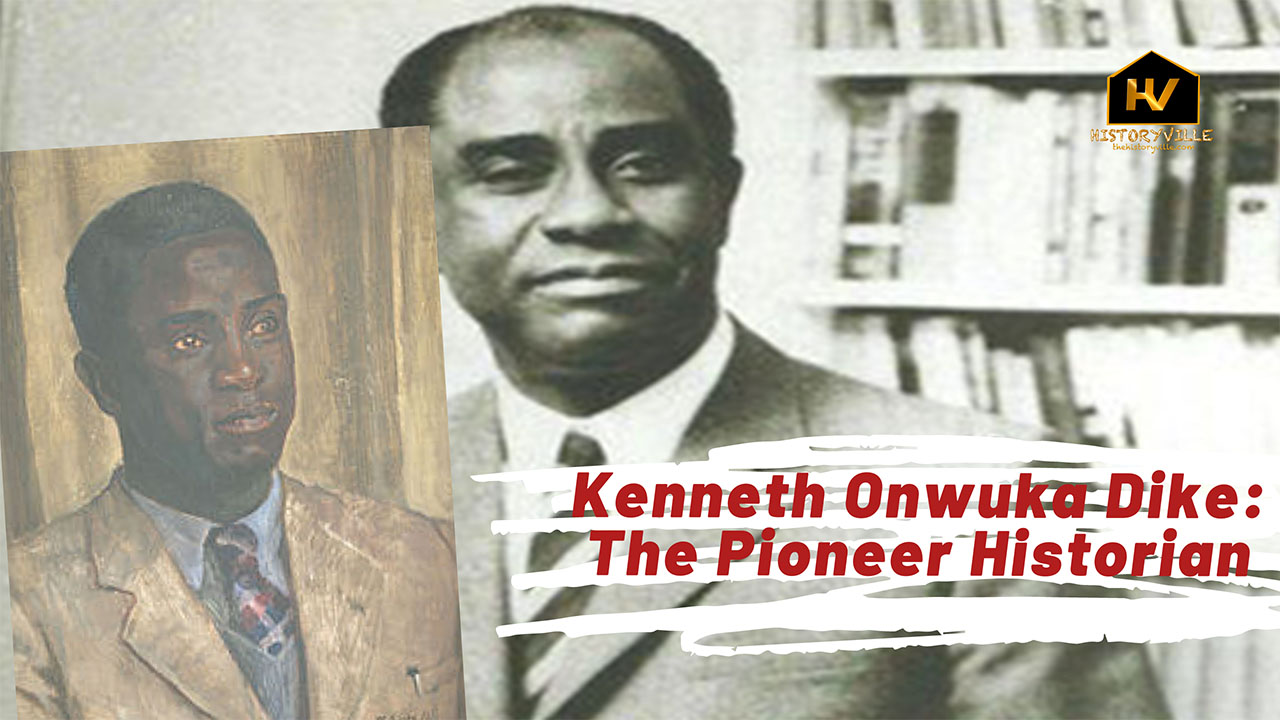
Few individuals have reshaped the understanding of African history as profoundly as Professor Kenneth Onwuka Dike, who, on September 28, 1957, West Africa[1] described as “The Pioneer Historian.”[2] Born on December 17, 1917, Dike rose to international prominence as a distinguished historian and intellectual trailblazer.
With academic honours that spanned continents (B.A., M.A., PhD, Hon. LLD, Hon. D.Litt., Hon. D.Sc), and appointments including Andrew W. Mellon Professor of African History at Harvard University, he was a towering figure in the global scholarly community. But beyond the accolades, Dike’s real legacy lies in his role as the pioneer who re-centred African voices in the telling of their own past.
Dike’s seminal work, Trade and Politics in the Niger Delta, published in 1956, marked a decisive break from Eurocentric interpretations of African history. He proved that Africa had a vibrant and complex historical tradition long before colonial intervention, one that could be studied using rigorous academic methods, including oral traditions and indigenous sources.
As the first Nigerian Vice-Chancellor of the University of Ibadan, Kenneth Onwuka Dike not only shaped academic standards but also laid the institutional foundation for historical scholarship in postcolonial Nigeria. His work inspired a generation of African historians to reclaim their narratives from the shadows of imperial discourse.
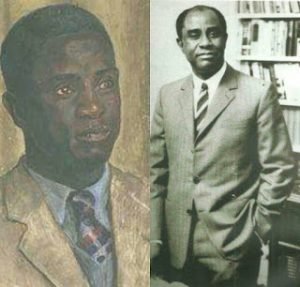
Yet Dike’s influence extended beyond academia. During the Nigerian Civil War, he served as the roaming Ambassador of Biafra to Côte d’Ivoire, advocating for the recognition of the secessionist state. In doing so, he added a diplomatic chapter to an already remarkable life of service to history, education, and nationhood.
This article revisits the life and impact of Professor Kenneth Onwuka Dike, a scholar, statesman, and visionary whose legacy continues to shape how Africa sees itself and how the world sees Africa.
Biography of Kenneth Onwuka Dike
“The Pioneer Historian,” Kenneth Onwuka Dike, was born in Awka, present-day Anambra State, Nigeria, on December 17, 1917. He was the third son of Nzekwe Dike, an itinerant medicine man and trader. He lost his father in 1922, at the age of four, and his mother, Nwudu Dike, a year later.[3]
Thus, young Kenneth became an orphan at an early age and was raised by his grandfather, Dike Nwancho, assisted by his elder brother, George Dike, who was born in 1909.
In 1923, Dike was apprenticed to an itinerant medicine man who operated between Awka and the commercial city of Onitsha. He started his primary education at Government School Awka and then his secondary education at Government College Awka. In 1933, he enrolled at the prestigious Dennis Memorial Grammar School, DMGS, Onitsha, Nigeria.
After three years at DMGS, Kenneth Onwuka Dike spent another two years at Achimota College in the Gold Coast, present-day Ghana. From Achimota, he moved to Fourah Bay College, Sierra Leone. At the time, Fourah Bay was affiliated with and awarded degrees from Durham University. This meant that through Fourah Bay, Dike took a B.A. (in English, Geography, and Latin) from Durham University.
In 1943, he returned home to Nigeria but did not stay long. In November 1944, Dike left on a British Council Scholarship for an M.A. degree in History at the University of Aberdeen. In June 1947, he graduated, bagging first-class honours (the best of his year) at Aberdeen.
Four months later, Kenneth Onwuka Dike registered for his PhD at King’s College, University of London. Under the supervision of Vincent Harlow and Gerald S. Graham, he carried out a dissertation entitled Trade and Politics in the Niger Delta, 1830-1879. He earned his PhD degree on July 28, 1950.
Career
The 1950s proved to have been Dike’s most productive scholarly years, preceding his university administrative career and later political activity in the interest of an independent Biafra. His study on The Preservation and Management of Historical Documents in Nigeria was published in 1953. This research had to do with creating the National Archives of Nigeria, which he later served as the director.
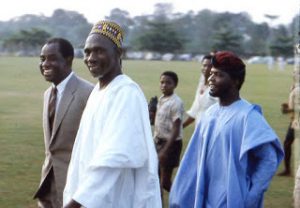
Kenneth Onwuka Dike worked for a time as chair of the Nigerian Antiquities Commission in the same documentation and preservation manner. A Hundred Years of British Rule in Nigeria was published in 1957, followed by The Origins of the Niger Mission, a year later, in 1958.
From 1963 until late 1966, Kenneth Onwuka Dike was Vice-Chancellor at the University of Ibadan — that is, he was the university’s chief administrative officer. Prior to assuming that post, he had been a director at the Institute of African Studies, Ibadan, in addition to being the director of the National Archives. His combined administrative/academic skills also led to his appointment as chair of the Association of Commonwealth Universities.
As an Igbo and an Easterner, Dike’s role as a head university administrator in Western Nigeria became untenable after the countercoup of July 28/29, 1996, that led to the overthrow and brutal assassination of the Head of State, Major-General Johnson Thomas Aguiyi-Ironsi and the subsequent pogrom against the Igbos, especially in the North. For his safety, Professor Kenneth Onwuka Dike resigned as the Vice-Chancellor of the University of Ibadan in December 1966 and was succeeded by Professor Thomas Adeoye Lambo, a world-renowned psychiatrist who served as Vice-Chancellor until 1971.
In 1967, Professor Dike joined his fellow Igbo people in Eastern Nigeria who were seeking secession and forming a separate nation. The new nation was to be called Biafra, located at the mouth of the Niger River and named after the Bight of Biafra. The name of this body of water separating the eastern and western parts of Nigeria has since been erased from maps of the reunified nation.
From Ibadan, Kenneth Onwuka Dike went home to become a roving ambassador for the new Republic of Biafra. He acted in this capacity from 1967 to 1970, travelling extensively and speaking out on behalf of the Biafran position in the civil conflict.
By 1968, Dike’s position with regard to Biafra had become unshakable. Before that time, Biafra’s attempts to achieve a loose confederation with the West had his support. These overtures, however, were rebuffed by the Western powers. Biafra’s eventual and necessary unconditional surrender was certainly a blow to this determined intellectual. Still, during the final days of the secession effort, he served as Biafra’s representative at cease-fire negotiations in Abidjan, Côte d’Ivoire.
During the postwar years, in the 1970s, Dike went into exile and took up an academic position at Harvard University in the United States. He was president of the Committee on African Studies at Harvard from 1971 to 1973. He was then recruited to Harvard as the first Mellon Professor of African History in 1973. He continued teaching there until 1978 when he was able to return to Nigeria.
Family and Death
Professor Kenneth Onwuka Dike re-entered administrative work in Nigeria, this time as president of Anambra State University. Anambra was located in Enugu in the Eastern part of the reunited nation North-East of his birthplace, Awka. His wife, Ona, accompanied him when he returned to Nigeria in 1978.
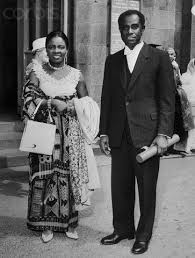
Kenneth Onwuka Dike died in an Enugu hospital on October 26, 1983. He was 65. At the time of his death, his children, Nneka and Emeka, lived in Nigeria’s then-capital city of Lagos. Three other children (two daughters, Chinwe and Ona, and one son, Obi) remained in Cambridge, Massachusetts, in the United States of America.
Legacy of Kenneth Dike
Professor Kenneth Onwuka Dike was the first to draw the attention of the international community to the fascinating outlines of a viable African epistemology instead of venturing into European history. As indicated above, Dike, despite all odds, successfully carried out his doctoral dissertation, Trade and Politics in the Niger Delta, 1830 – 1885 later published in 1956 by Oxford University as Trade and Politics in the Niger Delta, 1830 –1885: An Introduction to the Economic and Political History in Nigeria.
Though the book made an immediate international impact as marking a new beginning in the historiography of Africa, it greatly stimulated and inspired a new generation of practitioners of African history to make vigorous research using various ways, views, and methods. Many African scholars went further to investigate Africa and African history, cultures, and affairs other than theirs.
Dike desired to train Nigerians in the techniques and methodology of the inter–disciplinary approach when he became the Director of the Benin History Project and co-organiser of the Eastern Nigerian Research Scheme in 1966. However, he failed to realise his dream because the Benin History
Project was hijacked by non–Nigerians, while the Eastern Nigeria Research Scheme was aborted due to the outbreak of the Nigerian Civil War.[4]
Kenneth Onwuka Dike also created enduring foundations that gave impetus to an African initiative or Africa–centred perspective when he rooted for the establishment of the Department of History at the University College, Ibadan. He, therefore, used the Department of History to sow and water the seed of African epistemology.
The History Department soon became “a centre of excellence in African historiography in the world.”
In fact, at a point, “The History Department of Ibadan had no less than four full professors and began to supply staff, including Vice-Chancellors, to other universities.”[5]
At this juncture, it would be worthwhile to recall that the late Professor Kenneth Onwuka Dike was the first African head of History at the University of Ibadan, the first Indigenous Principal of the University College, Ibadan, and later the first Nigerian Vice-Chancellor of the University of Ibadan.[6]
The efforts of Dike would be better appreciated if we remembered that Ibadan was still under the control of imperial London, and its curriculum was stocked with European and English History as well as British Colonial History. Dike’s idea of “African first” created a new generation of African historians who, through rigorous inquiry, projected the “glorious Africa” internationally with pride and satisfaction.[7]
Another remarkable contribution of Professor Kenneth Onwuka Dike to African epistemology, with great emphasis on African initiative or African-centred perspective, was the establishment of the Historical Society of Nigeria (HSN) in 1955. The HSN, thus, became the first and now the oldest academic professional body in Nigeria, which produced most of the early practitioners of History who became professors, administrators, heads of institutions, and contributors to national development.
Prominent among them are Jacob Festus Ade-Ajayi (1929-2014), Isaac Madubuogo Okonjo, C.C. Ifemesia (1925-2024), Ebiegberi Joe Alagoa (b.1933), Tekena Nitonye Tamuno (1932-2015), J.C. Anene, Emmanuel Ayandele (1936-2014), Obaro Ikime (1936-2023), Adiele E. Afigbo (1937-2009), and S.J.S. Cookey (b.1934).
Your support can make a world of difference in helping us continue to bring Nigeria’s rich history to life! By donating to HistoryVille, you’re directly contributing to the research, production, and storytelling that uncover the incredible stories of our past. Every donation fuels our mission to educate, inspire, and preserve our heritage for generations to come.
Additionally, if you’re a business or brand, running adverts with us is a powerful way to reach an engaged audience passionate about history and culture while supporting content that matters.
Please stay connected with us through our social media handles and make sure you are subscribed to our YouTube Channel. Together, let’s keep the stories of Nigeria’s past alive.
References
- [1] West Africa was a weekly news magazine published in London between 1917 and 2004.
- [2] Nwaubani, E. (2000). Kenneth Onwuka Dike, Trade and Politics, and the Restoration of the African in History. History in Africa, 27, 229–248. doi:10.2307/3172115
- [3] Chuku, G. (2013). Kenneth Dike: The Father of Modern African Historiography. In: Chuku, G. (eds) The Igbo Intellectual Tradition. Palgrave Macmillan, New York. https://doi.org/10.1057/9781137311290_6
- [4] Awortu B.E., Uebari S. (2015). African Intellectual Revolution In the 20th Century: A Review of Kenneth Onwuka Dike’s Contributions to African History. International Journal of African and Asian Studies. ISSN 2409-6938.
- [5] Ajayi, J.F.A. (2008). “History and Society” in C.B.N. Ogbogbo and O.O. Okpeh (Eds). Interrogating Contemporary Africa Dike Memorial Lectures. 1999-2007. Ibadan: Historical Society of Nigeria.
- [6] Awortu and Uebari (2015).
- [7] Ibid.


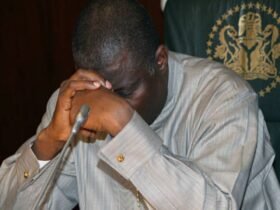
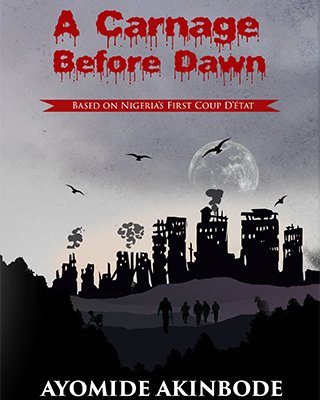




Leave a Reply
View Comments